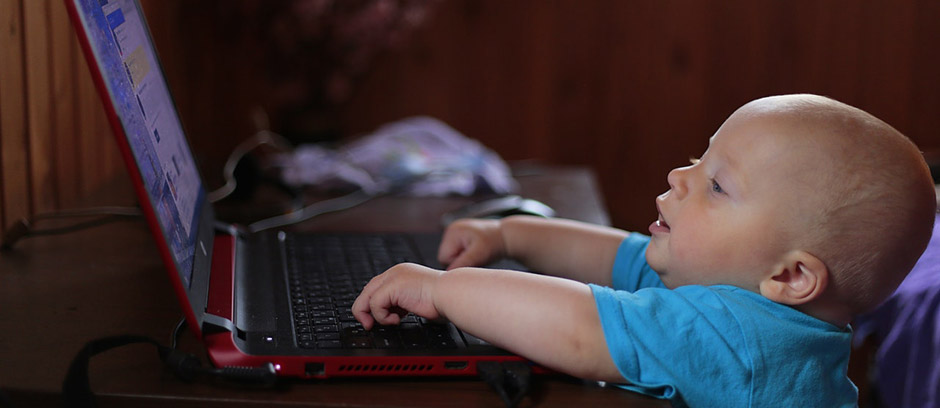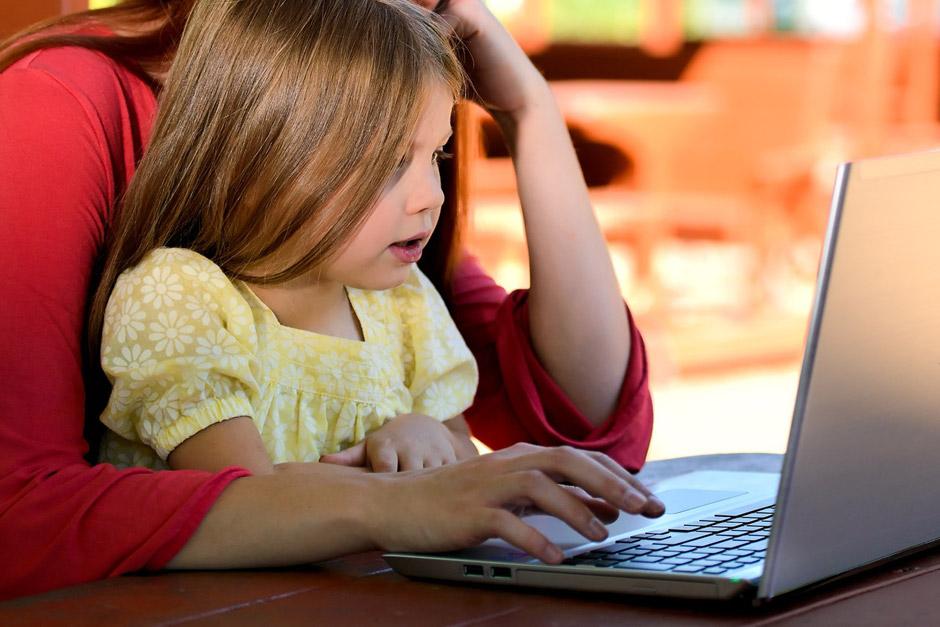Big data is everywhere! Facebook is selling the passcodes to our innermost fears and dreams to the highest bidder. Our smart phones are listening to our conversations and marketing them back to us. Every step we take in the digital world is being sifted, analysed and stored for some unimaginable future reference.
And that’s just the consenting adults. What about the pitter patter of tiny digital footprints?
The average parent (and there are plenty of those) shares an image of their child 1000 times before they reach the age of five, according to Nominet 2015 survey. And we’ve all seen those pictures of an orange or some handwritten note from a Year 7 class in the Outer Hebrides being flagged up around the world as part of an internet awareness project.
And yet so many of us parents are guilty of posting stuff about our kids every day. Some little humans have only been drawing air into their lungs for a few minutes before their likeness pops up on the internet to a chorus of long-distance congratulations and hearts and blue thumbs. Their online presence is established before their first nappy change with their own parents acting as paparazzi and gossip columnists, churning out cringeworthy scoop after scoop. They’re doomed!
Some call it ‘sharenting’ – an ugly word for an ugly habit – others diagnose another symptom of ‘digital narcissism’, dragging your children’s lives online to win a few likes, a quick dopamine hit. Another idea is that we should think of the data we leave in our wake as ‘digital tattoos’, something potentially embarrassing that would take a lot of effort to remove later in life.

They might also read about some childhood event later in their lives and realise that while they were excitedly telling Daddy about a new dinosaur they’d discovered, he was yawning all over social media about his chatty little palaeontologist. That would be horrible. (On the other hand, if they become parents themselves, they might appreciate the unvarnished insight into how their folks faced the same dilemmas.)
So what can we do to try and minimise the potential damage to our little ones’ future prospects in love, work and criminal court proceedings?
Talk to them
The ‘have-you-tried-switching-it-on-and-off-again?’ of parenting, having a nice chat with your children is almost always the starting point for handling issues like this. Ask them if they’re happy for you to post about them. Discuss what apps or online games they enjoy and then take a look at them together. Make sure they know how to block or report unsavoury characters. Talk with them about how what goes online stays online forever. Maybe you can agree a family agreement about how everyone uses the internet to keep things fair.
Set boundaries
Another IRL-parenting classic here. Technology is on your side, though, as you can remote parent as much as you like by managing their devices or monitoring their output as a friend or follower. You’re not creeping into their room and reading their diary, more like keeping an eye on what they’re writing on the side of the bus stop. The real trick though is setting boundaries on yourself - thinking about whether your son will thank you a few years down the line for all the posts about his tricky potty-training. Facebook and Twitter have been supplying us with our own shop windows for around a decade, so in a few years we will reap the whirlwind of the first batch of overexposed babies.
Remember online gaming
This is probably the environment where your kids will encounter the most random people, so try and make sure they know not to engage with other players on any other apps and how to report or block anyone that makes them feel uncomfortable
Delete everything?
You might get a huge initial buzz from the clean feeling, but wasn’t the whole reason you posted on social media about your children to stop yourself feeling isolated. While your little one might not appreciate your post about their tantrum in the supermarket, the supportive comments you got from other parents at the time were golden.
Turn it into a positive
While fears about what harm might be done are understandable, at the same time there is huge potential for your kids to do what we try and do with our social media – put our best face forward. If they can share the interests and achievements they are excited about, then prospective employers a few years down the line might be impressed.
No one can know what is going to happen with all this info in the future. Maybe kids might get bullied for not having enough of a digital presence. Maybe a lack of online info might be considered detrimental – like a blank CV. Maybe shadowy political forces have already worked out how your toddler is going to vote in 2025.
One thing is certain, however: publishing embarrassing pictures of your offspring now means you deny yourselves the fun of humiliating them with cute baby pictures when their significant other first comes over for Sunday dinner. Dire consequences indeed.




Leave a Comment: